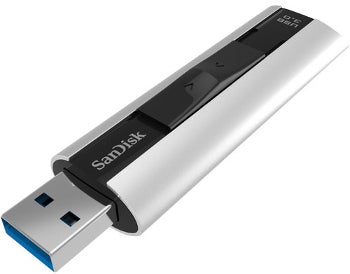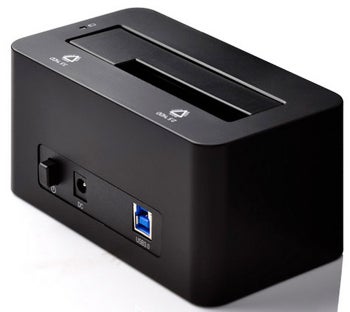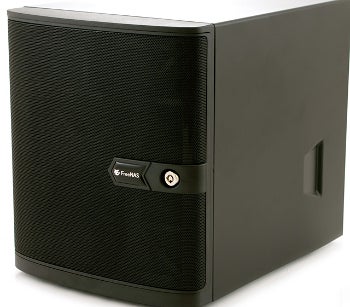You already know you need good, regular backups of all of your business data, but you may get stuck figuring out the best way to manage them. Fortunately, you don’t need to spend a scary amount of money to buy and set up a reliable backup system.
Your data backup system requires two parts: onsite and offsite. Please read 5 Best Online Backup Services for Small Businesses to learn about good commercial offsite backup services. Plus, A Guide to Small Business Data Backup and Recovery is an excellent guide to help you craft a workable backup plan. Now let us turn our attention to a selection of reliable and affordable backup devices to use in your small business.
In this article, we’ll look at both locally-attached and network-attached backup devices. USB sticks and external USB hard drives are wonderful for making backups on a single computer, and network backup servers simplify data protection for your whole shop.
Simple, Yet Solid, Data Backup Devices
USB Sticks
USB sticks are small in size and price, but mighty in capacity; you can get as much as 128 gigabytes storage capacity on a USB stick. You have a choice of USB 2.0 and USB 3.0 devices, so which one should you buy? USB 3.0 is the current standard, and it is backwards-compatible so it works with computers that have only USB 2.0.
It costs only a little bit more, so you might as well go with 3.0 drives. USB 3.0 promises a transfer rate of 5 Gbits per second, compared to 480 Mbits for USB 2.0. Both are theoretical upper maximums, of course, and you’ll be lucky to see half that: which is still pretty darned fast. (Note that you’ll see 3.0 speeds only on computers with USB 3.0; it’s easy to tell what they are because 3.0 ports are blue.)
Figure 1: You can usually find a Sandisk 128G USB 3.0 drive for about $150.
Not all USB sticks are created equal, and you want to stick with the best brands: SanDisk, Verbatim, Kingston, Lexar, and Corsair are all reliable and sturdy.
USB Hard Drives
When a USB stick isn’t big enough, USB hard drives offer the most storage for the buck. You can get a portable drive with a built-in USB port, like the popular Western Digital My Passport Ultra. The drive offers capacity ranges from 500MB-2TB, has USB 3.0, and comes with very nice backup and recovery software for Windows. (Mac users get their own special versions.) The Passport ULtra comes with encryption, easy automatic backups, and a cloud backup option. And it comes in a variety of colors. Pricing ranges from $60 to $120.
Figure 2: Western Digital My Passport portable backup drives.
I prefer to use an external drive enclosure because, if the hard drive dies or reaches its capacity, it’s easy to replace. Rosewill makes solid single-drive enclosures for about $25. For cuteness I like the Orico 6619US3 dock (about $50), because it looks like a single-slice toaster. It supports USB 3.0 and holds either a 2.5-inch or 3.5-inch SATA hard drive. You can also find two-slice toasters, I mean docks, which are nice for doubling your storage, or for copying one drive to another. You can find good 2TB hard drives for around $100, so $150 buys you a whole lot of backup space.
Figure 3: Form meets function in the Orico hard drive dock.
Solid-state Drives
Solid-state drives (SSDs) are expensive in comparison to hard drives, but they’re durable, small, fast, and have low power requirements. SSDs are wonderful for workloads where it’s worth paying more for a speed boost, like for system files and multimedia production.
The Aegis Padlock Fortress is an advanced external USB SSD that has very strong encryption and security tools, including a built-in keypad for entering a PIN. It comes in three sizes: 128GB, 256GB, and 512GB, and in three prices: $309, $479, and $779. Nobody is going to break into this sleek little beast to steal your data.
Figure 4: The Aegis Padlock Fortress SSD.
Network Storage Servers
The FreeNAS Mini is a wonderful network storage server powered by the best network-attached storage (NAS) software, FreeNAS. You can use it exclusively for backups, or for file-sharing and multimedia streaming. If you’re into doing-it-yourself you can download FreeNAS for free and install it on your own hardware.
FreeNAS has long been one of the most popular NAS systems; it is built on the rock-solid FreeBSD operating system, and uses the advanced enterprise ZFS filesystem. ZFS gives you a host of cutting-edge features to manage and protect your data, including de-deduplication, Z-RAID 5, 10, and striping, and encryption.
Figure 5: The FreeNAS Mini network storage server.
The Mini, a sleek little hardware appliance, holds up to four hot-swap SATA hard drives for a maximum 16TB of storage. It comes with 16GB of error-correcting RAM, an 8-core, 2.4GHz Intel processor, dual gigabit Ethernet ports, a hardware encryption module, physical locks, and FreeNAS installed on an internal flash storage module.
This little darling has it all: speed and capacity. It will set you back $1,295 for 4TB of storage, and up to $1,895 for 16TB. The manufacturer of the FreeNAS Mini, iX Systems, uses Western Digital Red NAS hard drives. These extra-rugged drives run cooler, and they’re optimized for network storage. You can talk to the nice people at iX Systems to order one made to your specifications, or you can order it from Amazon in five configurations options.
The FreeNAS software comes with a Web control panel for controlling all aspects of your server, from configuring backups to hardware status and controls. It supports Windows, Mac, Linux, and Unix clients. There are plenty of NAS appliances, and the FreeNAS Mini gets my vote for best value and best performer.
Figure 6: Western Digital My Cloud EX4.
Western Digital markets My Cloud EX4 storage appliance as a home media server, but it’s perfect for the small business as well. The chassis, without hard drives, sells for around $800, and pricing with WD Red hard drives varies between different vendors.
It holds up to 16TB of storage in four drive bays, 512MB RAM, a Marvell single-core 2.0GHz processor, dual Gigabit Ethernet, and a Web control panel. It’s not as rugged as the FreeNAS Mini, and it’s a slower performer. But it has a simpler management interface, and includes modules for connecting to cloud storage and for backing up mobile devices.
Carla Schroder is the author of The Book of Audacity, Linux Cookbook, Linux Networking Cookbook,and hundreds of Linux how-to articles. She’s the former managing editor of Linux Planet and Linux Today.
| Do you have a comment or question about this article or other small business topics in general? Speak out in the SmallBusinessComputing.com Forums. Join the discussion today! |







